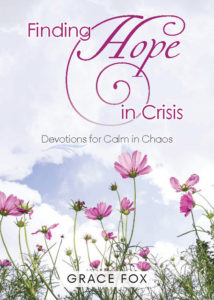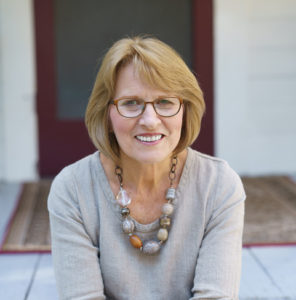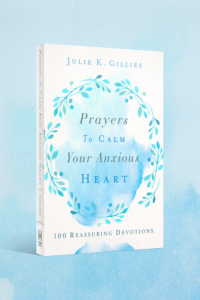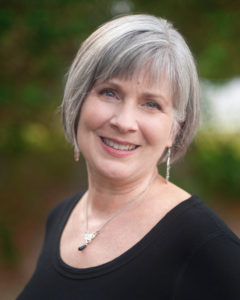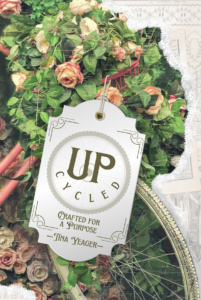 WHEN WE FEEL lonely and disconnected, it can be hard to find connection again. Author and mental health counselor, Tina Yeager offers us a creative answer to find our way back into community. In her new book, Upcycled: Crafted for a Purpose, Tina urges readers to revaluate their imperfections as opportunities for God’s upcycling artwork.
WHEN WE FEEL lonely and disconnected, it can be hard to find connection again. Author and mental health counselor, Tina Yeager offers us a creative answer to find our way back into community. In her new book, Upcycled: Crafted for a Purpose, Tina urges readers to revaluate their imperfections as opportunities for God’s upcycling artwork.
Linda: What inspired you to write Upcycled?
Tina: On a prayerful walk through a park with the Lord, I felt concerned about the way so many of us have grown disconnected from one another. I asked God what might draw us back into relationships and experience healing together. Images of upcycled crafts came to mind as ways to tangibly work through restoration while gathering together around a shared project.
Linda: I sense an analogy here. How would you define the word Upcycled? And how does that relate to relationships and people?
Tina: Webster’s definition of upcycle is “to recycle (something) in such a way that the resulting product is of a higher value than the original item : to create an object of greater value from (a discarded object of lesser value).” Our Creator, the Ultimate Upcycler, redeems us from our brokenness and frailty and makes us better than new. As new creations in Christ, we have the fresh purpose of living out his will empowered by the character and gifts of the Holy Spirit. If we choose to submit ourselves to living in alignment with this renewed identity, we can love others with divine grace and purity. Guardedness no longer impedes our intimacy. Self-interest no longer blinds us from seeing others’ needs and ministering to them.
Linda: What is your book, Upcycled: Crafted for a Purpose, about?
Tina: Upcycled: Crafted for a Purpose takes readers on an interactive journey to discover how God reinvents rusty and flawed folks like us into cherished masterpieces who glorify him daily. Each chapter includes a gift or décor project which illustrates one of the ways the Great Artist remakes us to serve a beautiful purpose. Readers will encounter the loving craftsmanship of a Savior who makes all things new. The projects will serve as tangible reminders and opportunities to share hope of renewal with the world.
Linda: You talk about loneliness and people being disconnected. How would you describe the issues of loneliness in today’s culture?
Tina: Online work and social connections have replaced in-person fellowship as the new normal. It takes less time to respond to a post or text message than to have a conversation. Families even text one another when at home together. People who do share a table for a meal spend more time scrolling on their devices than conversing with those seated around them. Instead of increasing our spare time, the urgency of online connection demands more of our attention. We’ve grown so comfortable living through our virtual avatars, we now find it challenging to engage in authentic, personal communication.
Linda: Why is this, Tina? Since you’re a mental health counselor, why do you think our reliance on technology has hurt our personal communication and perhaps even our emotional health)?
Tina: Face-to-face conversations can prove risky. Messy. Awkward.
Yet well-being depends upon human contact, not just digital communication. The Creator declared as good all the things he made, but 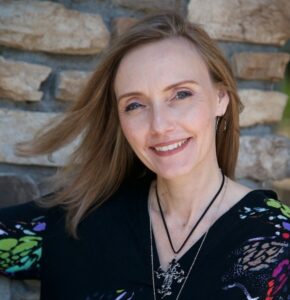 cited one critical exception. “It is not good for the man to be alone” (Genesis 2:18, NIV). Elohim, a relational and triune God, created us for relationship. He did not design us to exist in emotional, spiritual, or physical isolation.
cited one critical exception. “It is not good for the man to be alone” (Genesis 2:18, NIV). Elohim, a relational and triune God, created us for relationship. He did not design us to exist in emotional, spiritual, or physical isolation.
Science supports this ancient scriptural truth. The National Institute of Health “has linked social isolation and loneliness to higher risks for a variety of physical and mental conditions: high blood pressure, heart disease, obesity, a weakened immune system, anxiety, depression, cognitive decline, Alzheimer’s disease, and even death.”
Our physical, emotional, and spiritual wellness require us to connect and engage in person. We need to upcycle our broken fellowship practices.
Linda: Has isolation affected marriage relationships?
Tina; The practice of disengaging socially seeped into our most intimate relationships. Couples busy themselves with projects to consume the time which might have required them to face hard conversations or express painful emotions. Spouses gaze at screens during meals instead of making eye contact. They focus on digital content during shared travel rides instead of engaging with one another’s hearts. When bored or stressed, our first remedy is to find a game or other escape online.
But these solutions cause more neurological harm than benefit. The dopamine response to digital activity operates in a similar way to chemical addictions and ensuing compulsions as well as dopamine crashes and increased anxiety can result from dependence upon online engagement.
God offers us the gift of human relationship as a superior remedy to our stress and need for engagement. When centered in faith, our marriages can serve as ways to relieve anxiety and stress without the side effects caused by digital overexposure. We can renew together those places in our hearts that decay when neglected.
Linda: How can craft projects help us heal and grow?
Tina: To begin with, human beings learn best by doing. Experiences move learning across that immense space from mind to heart. Tangible projects root our growth into our hearts at a deeper level.
Also, we heal by connecting with the Spirit wrapped in the skin of our believer-friends. Renewal and growth occur in community. And relationships are based upon play. As we laugh and play together in art projects, our hearts draw closer to one another.
Linda: How does your book, Upcycled: Crafted for a Purpose, help draw people into relationship?
Tina: The crafts included in each chapter can gather people into fellowship circles. Even those reluctant to join discussion groups might feel more comfortable connecting with others for a project-centered meeting. The message of inner renewal transforms readers into vessels of loving grace. The book also provides lists of mission opportunities, through which families or groups can share the message by donating the projects. Ministering to others bonds those working together. We also experience heightened growth through the messages we’ve learned and shared. This Christ-designed discipleship model also strengthens our connections with those who share our faith journey.
Linda: How might couples, families, or groups increase the growth and blessings they experience together?
Tina: We fulfill our spiritual growth by sharing the blessings we received with others who need hope.
Paul describes those to whom he writes his messages as “my joy and crown” (Philippians 4:1, NIV). Paul encountered Christ in a tremendous upcycling moment on the road to Damascus. While still bearing his original name, Saul of Tarsus, he persecuted followers of Jesus. The Lord whitewashed his eyes with blindness and its cure, then proceeded to reinvent him as Paul, an evangelist of redemption. As profound as the physical and spiritual renovation, fulfillment of his purpose was completed as he conveyed his blessings to others.
When we pour out the renewing truth God shares with us, our inflow of joy increases. With each craft, I suggest mission opportunities through which participants can donate the projects to hurting souls. Examples include domestic violence shelters, veteran organizations, or homeless ministries. Sharing the evidence of grace completes our renewal.
Linda: Does our brokenness prevent us from fulfilling our purpose?
Tina: In scripture and today, God chooses flawed individuals to join him in the work of renovating the world. Jesus Christ was the only perfect individual to walk the earth, so everyone else would be eliminated if God only chose the immaculate to serve. The Lord recognizes our marred past and splintered present when he calls us. As the Ultimate Salvager, he sees beyond our battered state and envisions our potential after the redesigning power of the Spirit transforms us. He makes all things better than new. Even worn and chippy folks like us.
Linda: I understand you have a gift for readers. Can you tell us about it?
Tina: Readers can download a free Upcycled inspirational flip book template at upcycledbook.com. You’ll get step-by-step instructions to make a giftable, weekly inspirational flip book from old greeting cards. The pages are downloadable and printable.
Linda: Where can people connect with you and get a copy of Upcycled: Crafted for a Purpose?
Tina: Visit my website, https://tinayeager.com to access craft videos and Flourish-Meant podcast episodes. You can also book life-coaching sessions or hire me as a speaker for your next event. Check out my YouTube channel for additional videos and content at https://www.youtube.com/c/TinaYeager. Feel free to follow me on Instagram or Facebook. Upcycled: Crafted for a Purpose is available on Amazon and at Bold Vision Books.
 IF YOU EVER feel invisible, ignored, and overlooked as though you blend in with the wallpaper when you’re with a group of people, the loneliness you feel can be overwhelming. Author Cheri Strange knows this feeling herself and wants to help you rediscover your true value. Her new book,
IF YOU EVER feel invisible, ignored, and overlooked as though you blend in with the wallpaper when you’re with a group of people, the loneliness you feel can be overwhelming. Author Cheri Strange knows this feeling herself and wants to help you rediscover your true value. Her new book,  alone?
alone? PROBLEMS HAPPEN. Often. Sometimes they seem overwhelming. We wake in the night and find ourselves wrestling with nightmarish situations that we just can’t get control over.
PROBLEMS HAPPEN. Often. Sometimes they seem overwhelming. We wake in the night and find ourselves wrestling with nightmarish situations that we just can’t get control over.
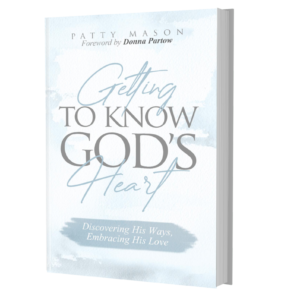
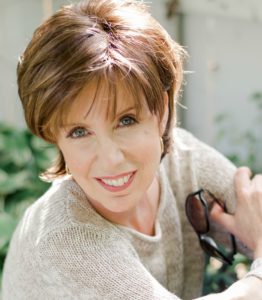
 WHEN THE YEARS begin to creep up on you faster than you’d like, you may become apprehensive about the changes taking place. Getting older can seem like a real bummer. But author Deb DeArmand has taken the challenge to offer some encouragement for you, along with a lot of laughs, in her new book,
WHEN THE YEARS begin to creep up on you faster than you’d like, you may become apprehensive about the changes taking place. Getting older can seem like a real bummer. But author Deb DeArmand has taken the challenge to offer some encouragement for you, along with a lot of laughs, in her new book, 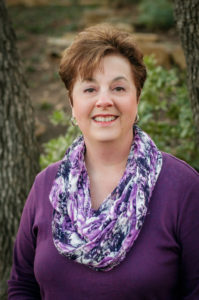 if we allow it to do so. It may cause us to lose self-confidence and begin second-guessing ourselves. It can also impact our opportunities as well.
if we allow it to do so. It may cause us to lose self-confidence and begin second-guessing ourselves. It can also impact our opportunities as well.

